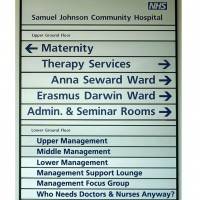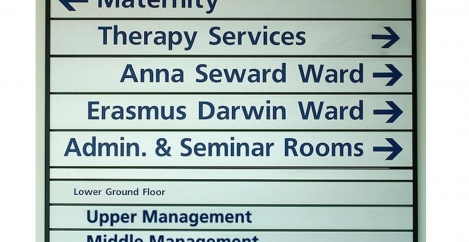February 9, 2016
Better workplace design and management could save the NHS £1 billion 0
 The National Health Service could make around £1bn in savings if it made better use of its estate, including more efficient workplace design, according to Lord Carter’s wide-ranging 18-month review into the operations and productivity of the NHS. The wide ranging review claimed that a total of £5bn could be saved by adopting a range of best practice standards. Carter examined 32 hospitals as well as looking at systems in the US, Germany, Australia, Italy and France for the report. Among the differences highlighted were variations in the use of floorspace, with one trust using 12 percent for non-clinical purposes and another using 69 percent. Overall, the review suggests that the NHS could save £1bn by 2020 via from the better management of estates, such as lighting, heating and the utilisation of floor space. The challenges of running the NHS estate efficiently have been something of an issue for some time, as we have reported.
The National Health Service could make around £1bn in savings if it made better use of its estate, including more efficient workplace design, according to Lord Carter’s wide-ranging 18-month review into the operations and productivity of the NHS. The wide ranging review claimed that a total of £5bn could be saved by adopting a range of best practice standards. Carter examined 32 hospitals as well as looking at systems in the US, Germany, Australia, Italy and France for the report. Among the differences highlighted were variations in the use of floorspace, with one trust using 12 percent for non-clinical purposes and another using 69 percent. Overall, the review suggests that the NHS could save £1bn by 2020 via from the better management of estates, such as lighting, heating and the utilisation of floor space. The challenges of running the NHS estate efficiently have been something of an issue for some time, as we have reported.
Responding to the findings Director of Asset Management at NHS Property Services, John Westwood, said in an interview: “The reported finding of £1bn in potential efficiency savings from hospital estates and facilities is a plausible total. There’s no doubt that some facilities are bursting at the seams, but some are not. There is a large amount of empty and under-utilised space across the NHS. Each part of the NHS needs a vision for the clinical and administrative space it needs now and in the longer term. That might be driven by local considerations, such as major housing development in the area, or national policy, such as the desire to provide 24/7 care or to shift care from acute hospitals to community settings. Once we know the vision, we can plan the right infrastructure for the NHS. We can look at the business case for modernising poor facilities, opportunities to end leases, the potential for raising revenue through subletting or releasing capital for reinvestment through sale of surplus property.”













